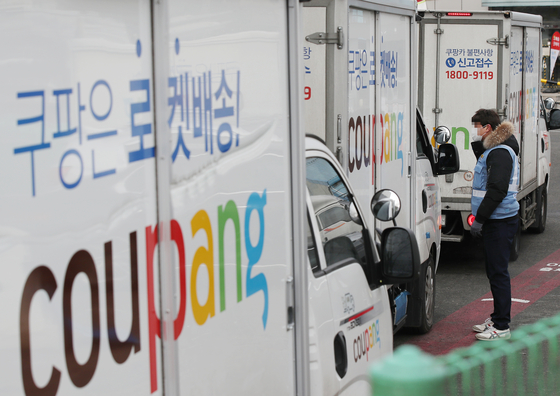As Coupang promoted listing on the New York Stock Exchange (NYSE), the controversy over’nationality’ was once again engulfed. Coupang was caught in controversy over nationality even during the boycott of Japanese products that began in July 2019.
Even with the listing on NYSE, public opinion devalued, saying, “It’s just an American company listed in the United States.” Even Minister of SMEs and Startups Kwon Chil-seung said on the 16th that “American companies are listed in the United States.”

yunhap news.
As Secretary Kwon said, Coupang’s’genealogy’ is very complex. Bum-seok Kim, the creator of Coupang, is the chairman of the Coupang Board of Directors. It is also true that the company listed this time is Coupang LLC’s parent company, Coupang LLC (change company name to Coupang INC), which owns 100% of Coupang, not a domestic Coupang corporation.
The board of directors of this Coupang LLC consists of 12 members, including Chairman Kim, Tuan Pam, Chief Technology Officer (CTO) who created the Uber system, Gorav Anand (CFO) from Amazon, and Chief Executive Officer (CFO) from Millicom, Harold Rogers ( CAO), etc., most of them are American.
Son Jung’s Vision Fund, more than half of’Oil Money’

Jeong-eui Son, Chairman of Softbank
The capital that raised Coupang also came from abroad. Coupang’s major shareholder is a vision fund led by Japan’s Softbank, chairman of Son Jeong-eui. Vision Fund has invested a total of 3 billion dollars (about 3,300 billion won) in Coupang. Through this, Vision Fund is estimated to own a 37% stake in Coupang LLC. For this reason, Coupang is known as a large corporation with Japanese capital.
However, it is the Middle East sovereign wealth fund that has invested the most money in the Vision Fund. Vision Fund No. 1, launched in 2017, led by Saudi Arabia sovereign wealth fund (45%), Softbank (28%), Abu Dhabi sovereign wealth fund (15%), Apple, Foxconn, Qualcomm, and Sharp (total 5%). Made by investing.
“Coupang is a Korean company” in the SEC listing report
However, Coupang is a Korean company that runs most of its business in Korea. Coupang’s S-1 report filed with the US Securities and Exchange Commission (SEC) on the 12th (local time) also said, “Coupang, which we fully invested in, is a Korean company. It is stated that it is operated in”.
Even during the boycott of Japanese products last year, Coupang said in a newsroom, “Coupang was established and grown in Korea, and more than 99% of its business is operated in Korea. It has created 25,000 jobs and pays 1 trillion won in labor costs to the Korean people.”

A statement posted in the Coupangi Newsroom in July 2019, when the boycott of Japanese products took place.
Experts point out that through the case of Coupang, an open view of nationality is necessary. Hyung-nam Moon, a professor at Sookmyung Women’s University Graduate School of Business, said, “Apart from the controversy about nationality, Coupang is a company that attracted global capital to Korea, created investment and created jobs in Korea.” “We need to create a social atmosphere that encourages foreign investment in the situation that is being recorded.”
Shin Min-soo, a professor at Hanyang University’s Business School, said, “It has been a long time since the concept of a state has disappeared from global companies, but platform companies have no borders. I don’t.” Kidae Lee, director of the Startup Alliance, said, “As companies with overseas corporations such as Google and Netflix take domestically generated profits overseas, it seems that they are more sensitive to nationality. Since all taxes are paid in Korea, controversy over nationality is unnecessary.”
Reporter Kim Kyung-jin [email protected]
